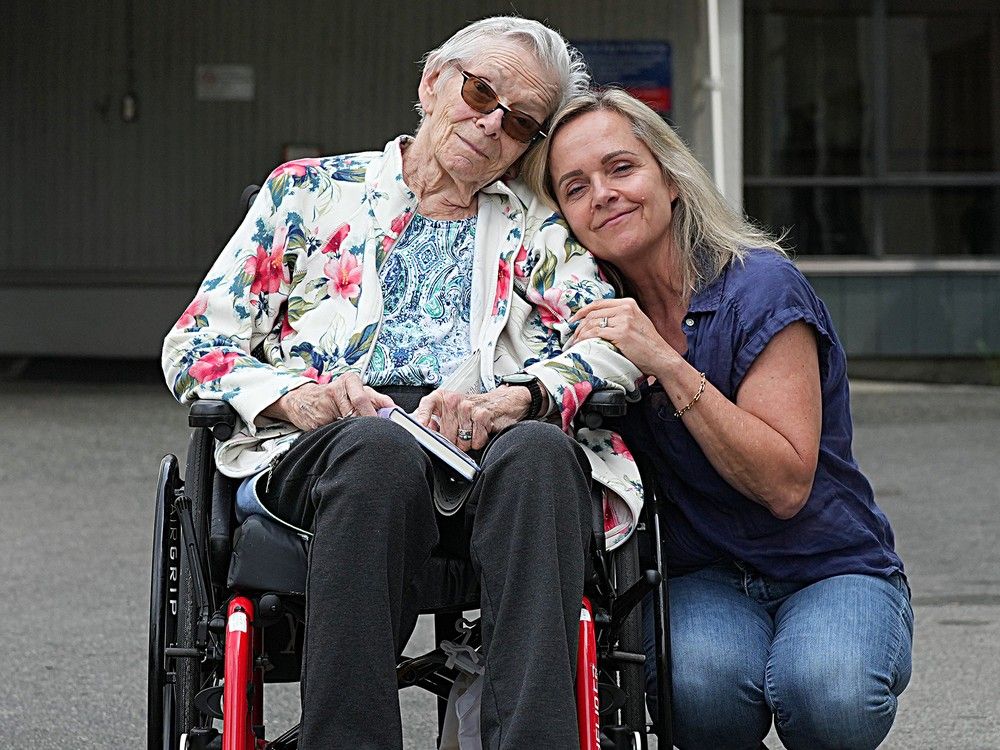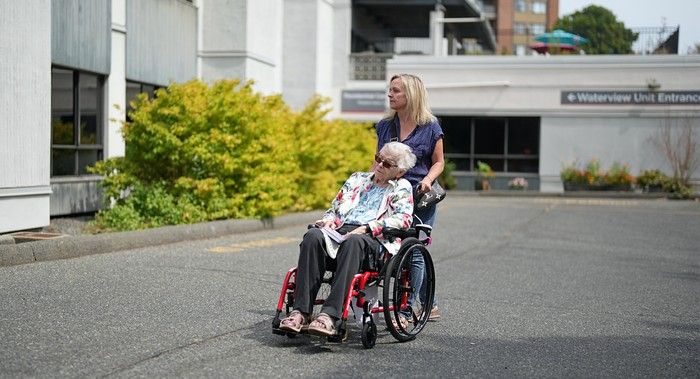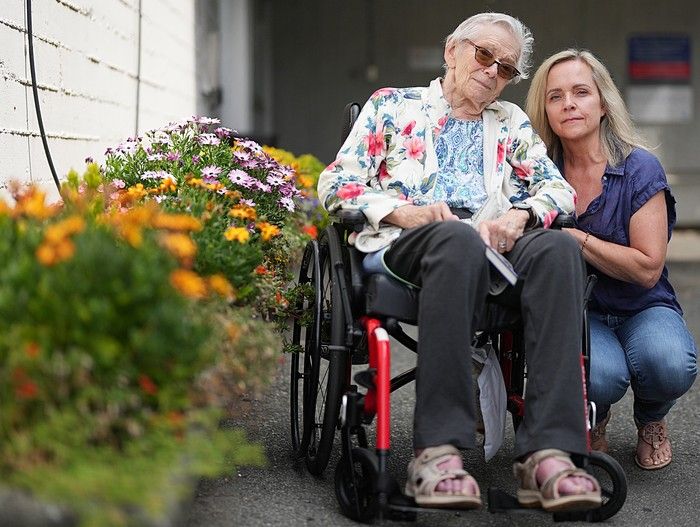
Barbara Donaldson has been waiting months, including six spent in a hospital bed, to get into a long-term care home.
But this could just be the start of the 84-year-old Victoria woman’s journey, as the Vancouver Island Health Authority has warned her and her family she could be facing up to two more years on a waiting list.
“I have raised my fist and shouted from the hilltop within the system to try to raise awareness and get something different for my mom, something better for my mom, and it has just been met with roadblocks,” said Laura Kyle, Donaldson’s daughter.
“I know that the government has known about this influx of seniors that was going to start happening in the last couple of years, and now, I mean, we’re on the front lines of it, witnessing it, and going, ‘I can’t believe that this problem was ignored.'”
Donaldson’s case illustrates the findings of the B.C. seniors advocate, Dan Levitt, whose latest report outlined how the waiting list for long-term care has exploded from 2,381 people in 2016 to 7,212 in 2025 — a 200 per cent increase — with the average waiting time increasing to 290 days from 146 days.
Levitt says this has resulted in a large number of hospital beds being taken up by seniors who are unable to take care of themselves at home.

Jennifer Baumbusch, a professor in the UBC school of nursing, said she has been a nurse for 30 years and that experts have been warning ever since she started her career about the lack of long-term-care spaces and the coming influx of seniors as the baby boomer generation reached old age.
“If we had built places 20 years ago, we’d be in good shape, but that wasn’t done. All of the money tends to get sucked up by the hospitals. The other piece that really needed to be done were huge investments in community-based care, and that also didn’t happen,” said Baumbusch.
“So now we’re here, not surprisingly, with hospital beds that are often filled with people who are waiting to move into a long-term care home, or people who are at home waiting to move in amid really long wait lists.”
Donaldson has an advanced stage of Parkinson’s disease and needs specialized care that is only really available in a long-term care facility, but instead she has been bounced around from an assisted living facility to acute care at Victoria General Hospital to her present residence in a transitional facility.
Kyle says she has been advocating for her mother since last summer, when Donaldson’s condition started to worsen and it became evident she would need more care than her independent living facility, run by provider Amica Senior Lifestyles, could provide.
Kyle says Amica does have long-term care facilities but it would have cost $18,000 a month. However, her mom’s case manager told her in November that if Donaldson moved into private long-term care and was running out of money, she could be placed on Island Health’s priority placement list based on financial need.
This would have allowed her to get placed into a publicly subsidized long-term care facility within a couple of months.
However, in February, a medical emergency put Donaldson into the hospital for six weeks and Kyle decided it was time to put her mom into long-term care at Amica with the goal of getting her on the priority placement list and into a publicly subsidized long-term care home.
That plan became untenable when Island Health informed her they no longer allow seniors to apply for priority placement due to financial need.
“There’s my mom sitting in the hospital, medically stable, not needing to be taking up a bed. And so I went to VIHA and said, ‘OK, what do I do?’ Because my mom can’t stay in the hospital (and) she can’t move into Amica’s long-term care indefinitely, because it costs $18,000 a month,” said Kyle.
She said she was told that Island Health could provide a 24/7 care aide for Donaldson, which would allow her to stay in her independent living suite but that a separate sleeping space, including a bed, would need to be provided. Kyle sold a bunch of her mom’s furniture to make space.
A week later, Kyle was told they couldn’t provide a 24/7 care aide but could provide three shifts of eight hours and the aide wouldn’t need a bed, just a comfortable chair. A week after that, it was downgraded to two shifts of eight hours with a mobile team for overnight care. The following week, Kyle was told the health authority couldn’t provide any home care.
By this time, Kyle says her mom had been languishing in hospital for a month longer than planned.
“She had been stable, excited to be leaving the hospital and go back to her home, and she was, luckily in a private room, in the hospital. But like a lot of seniors who spend extra time in the hospital, she was kind of going a little crazy, having a lot of cognitive issues and hallucinating,” said Kyle.

Months more passed and Kyle heard from Island Health about the possibility of placing her mom in a convalescent home, only for the health authority to realize it wasn’t the best place for somebody with a degenerative disease. She was also told about a transitional program called STEPS, which turned out to no longer exist.
Neither the Ministry of Health nor Island Health responded to a request for comment about the long waits for long-term care in Greater Victoria and lack of care aides.
Eventually, Donaldson was placed in the transitional wing of the Gorge Road Health Centre but Kyle says that it still feels very much like a hospital and her mother is only getting a day of programming a week, leading to a further deterioration of her mental state.
She said she wonders how many others are in the same situation as her mother, waiting for over two years for long-term care, and what the situation is going to be like for her three other parents when they start needing additional support.
“What’s their state going to be within this broken system?” said Kyle.